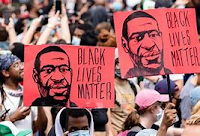Pop Culture
Is Pop Culture Good for You?
The question whether pop culture is good for you is not as easy to answer as it appears. Pop culture is part of our everyday lives from music and movies to social media trends, and its effects can be totally different depending on the person seeing it, hearing it, reading it.
On one hand, pop culture serves as a powerful tool for raising awareness about important social issues. A striking example is the Black Lives Matter movement, which gained significant traction in May 2020 following the killing of George Floyd.
However, pop culture also has its downsides. One major issue is "performative activism," where individuals engage in social causes primarily for social media recognition rather than genuine concern. The "Ice Bucket Challenge" serves as a classic example; while it raised substantial funds for ALS, many participants were more focused on gaining likes than making a meaningful impact. This raises an important question if something is trending, does it mean it’s truly significant?
In Malcolm Gladwell's article "Small Changes," the
significance of terms like “Negro,” “Empowered,” and “Support” becomes evident.
“Negro” carries a heavy historical weight tied to racial identity and
oppression. While some attempt to reclaim the term, its sensitivity remains,
especially among non-Black individuals. The term “Empowered” reflects how
social media can amplify voices, but it also highlights the tendency for people
to feel empowered without taking real action. Finally, “Support” serves as a
reminder that true help often goes beyond quick gestures; it challenges us to
consider how deeply we are willing to stand by others.
Overall, the relationship between pop culture and social
dynamics illustrates just how complicated engagement can be in today’s world.
While pop culture has the potential to inspire and foster community, it can
also lead to superficial engagement and spread misinformation. Thinking that by
thinking critically about our interactions with pop culture and understanding
the implications of our words and connections, we can harness its positive
potential. By being aware of the downsides of pop culture, we can make informed
decisions about what we share and support, ultimately making a meaningful
impact on our lives and communities. Engaging thoughtfully with pop culture can
transform it into a powerful tool for addressing social issues and more.






Yes, pop culture has the potential to be both problematic and empowering. It raises awareness and builds society by bringing crucial social issues.Yet, its drawbacks, performative activism and false information. Through critical engagement with popular culture, we can maximize its beneficial effects while reducing its negative ones.
ReplyDeleteJuliana, An engaging and well-written blog! Wonderful use of graphics to enhance your readers' experience. Thanks!
ReplyDelete